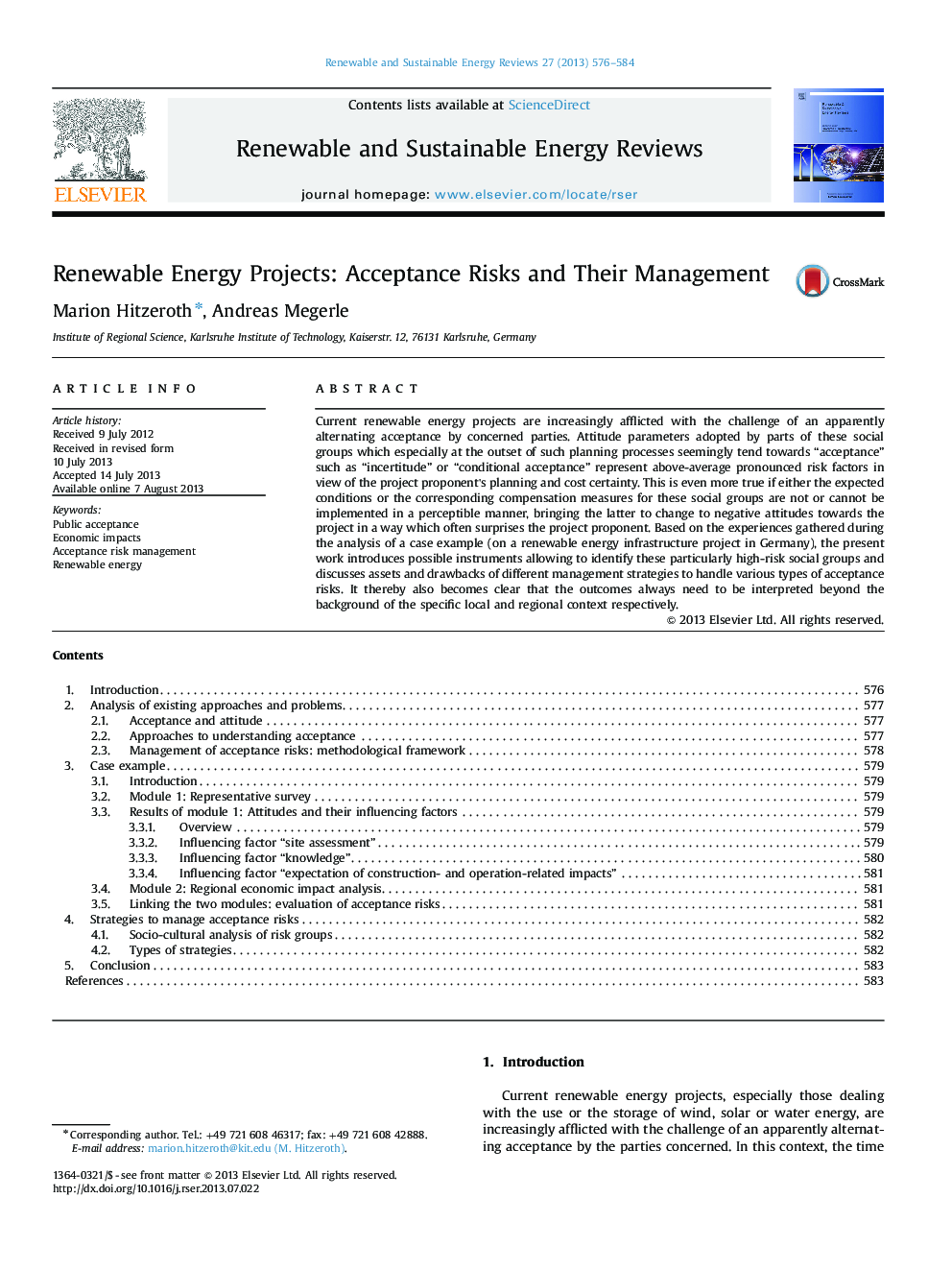| Article ID | Journal | Published Year | Pages | File Type |
|---|---|---|---|---|
| 8121539 | Renewable and Sustainable Energy Reviews | 2013 | 9 Pages |
Abstract
Current renewable energy projects are increasingly afflicted with the challenge of an apparently alternating acceptance by concerned parties. Attitude parameters adopted by parts of these social groups which especially at the outset of such planning processes seemingly tend towards “acceptance” such as “incertitude” or “conditional acceptance” represent above-average pronounced risk factors in view of the project proponent's planning and cost certainty. This is even more true if either the expected conditions or the corresponding compensation measures for these social groups are not or cannot be implemented in a perceptible manner, bringing the latter to change to negative attitudes towards the project in a way which often surprises the project proponent. Based on the experiences gathered during the analysis of a case example (on a renewable energy infrastructure project in Germany), the present work introduces possible instruments allowing to identify these particularly high-risk social groups and discusses assets and drawbacks of different management strategies to handle various types of acceptance risks. It thereby also becomes clear that the outcomes always need to be interpreted beyond the background of the specific local and regional context respectively.
Related Topics
Physical Sciences and Engineering
Energy
Renewable Energy, Sustainability and the Environment
Authors
Marion Hitzeroth, Andreas Megerle,
